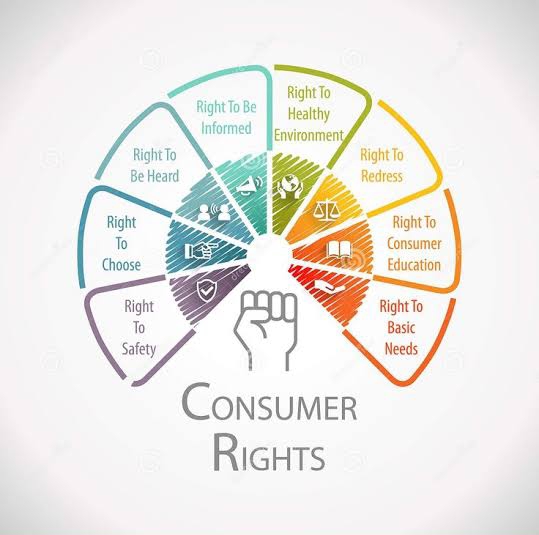Consumer Rights:protecting what's rightfully yours
 Chethan Raghavendra M C
Chethan Raghavendra M CTable of contents

Imagine buying a brand-new smartphone, only to find that it stops working within days. You reach out to the seller, but they refuse to help. Frustrating, right? This is where consumer rights come into play. As a consumer, you have the power to demand fair treatment, quality products, and honest services. But to do so, you must first understand your rights and how to exercise them effectively.
What Are Consumer Rights?
Consumer rights are legal protections that ensure buyers receive fair treatment in the marketplace. These rights prevent businesses from exploiting customers through fraud, defective goods, or unethical practices.
The Eight Fundamental Consumer Rights
The Right to Safety
Consumers should be protected from products and services that could harm their health or well-being. This includes everything from food safety to automobile manufacturing standards.
The Right to Information
You deserve complete and honest details about a product or service before making a purchase. Misleading advertisements or hidden fees violate this right.
The Right to Choose
A competitive market ensures you have options. Monopolies and unfair trade practices that limit consumer choice go against this principle.
The Right to Be Heard
If you have a complaint, companies and regulatory bodies should listen and address your concerns. Consumer forums and helplines exist to ensure your voice matters.
The Right to Satisfaction of Basic Needs
Essential goods and services like food, water, electricity, and healthcare must be available and accessible to all.
The Right to Redress
If you purchase a defective or substandard product, you have the right to a refund, replacement, or compensation. Consumer courts help enforce this right.
The Right to Consumer Education
Awareness is power. Consumers should have access to information about their rights, responsibilities, and how to seek redress.
The Right to a Healthy Environment
Businesses should not harm the environment in ways that negatively impact consumers' health and well-being. Sustainable practices and corporate responsibility are key.
How to Exercise Your Consumer Rights
Read Before You Buy – Always check labels, terms & conditions, and warranties before purchasing anything.
Keep Records – Maintain receipts, warranty cards, and written communication with sellers in case of disputes.
Report Unfair Practices – If you encounter fraud or poor service, report it to consumer protection agencies.
Use Consumer Forums – Many countries have online portals and helplines where you can file complaints.
Educate Yourself and Others – The more informed you are, the harder it is for businesses to take advantage of you.
Final Thoughts
Being a consumer isn’t just about buying products; it’s about making informed choices and standing up for your rights. Companies thrive on customer trust, and when consumers are aware of their rights, businesses are more likely to maintain ethical standards.
Next time you make a purchase, remember—knowledge is your greatest asset. Stay informed, stay protected, and demand the quality and fairness you deserve!
Next time you make a purchase, remember—knowledge is your greatest asset. Stay informed, stay protected, and demand the quality and fairness you deserve!
What’s been your experience with consumer rights? Have you ever fought for a refund or filed a complaint? Share your story in the comments!
Case Study: Consumer Rights Violation
Mark Johnson bought a smartphone from ABC Electronics with a one-year warranty. Within three months, the phone overheated and shut down randomly. When he sought a replacement, the retailer refused, blaming mishandling.
Johnson discovered similar complaints and filed a case under consumer rights, including the Right to Safety, Right to Information, and Right to Redressal. The Consumer Protection Authority ruled in his favor, ordering ABC Electronics to refund or replace the phone and imposing a fine for misleading warranty claims.
Key Takeaways
Consumers should assert their rights when treated unfairly.
Companies must provide truthful product information and honor warranties.
Legal protections ensure fair business practices.
This case underscores the importance of consumer rights enforcement in preventing unfair trade practices.
Subscribe to my newsletter
Read articles from Chethan Raghavendra M C directly inside your inbox. Subscribe to the newsletter, and don't miss out.
Written by
